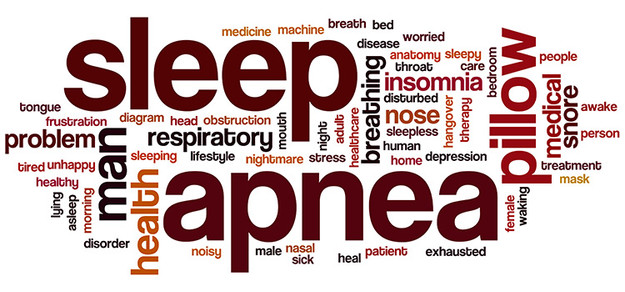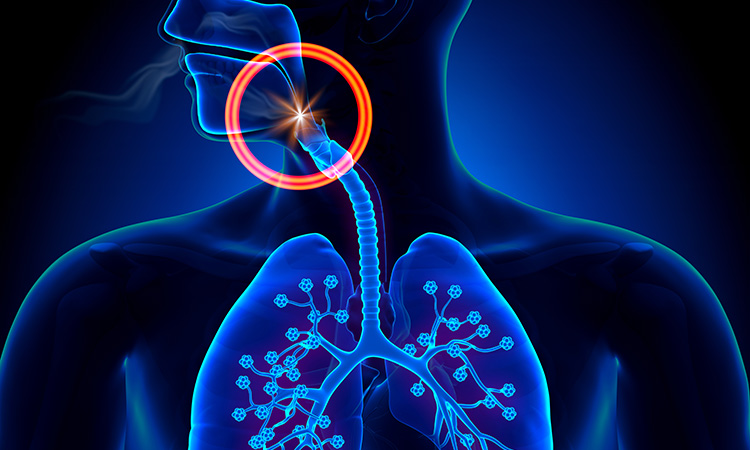Bruxism and Sleep Apnea: Are They Linked?
1st Feb 2020

Why might a dentist who diagnoses bruxism encourage you to ask a sleep medicine doctor about whether you should be evaluated for sleep disordered breathing? What could prompt a physician treating you for sleep apnea to suggest that you pay your dentist a visit? In recent years, several scientific studies have added to a growing body of evidence that there's a link between bruxism and sleep apnea. What do you need to know about these two sleep disorders?

What Is Bruxism?
Bruxism involves unconsciously and repetitively grinding, gnashing or clenching your teeth together. It can happen when you're awake or when you're asleep, and while its causes are uncertain, physical, emotional and genetic factors may all be involved in setting the stage for the condition.
Whatever its triggers, one thing is clear: Bruxism can have serious consequences. Damaged teeth, bite misalignments, sore jaw muscles, jaw pain, aggravated temporomandibular joints, TMJ disorders, pain in the face or ears, and headaches are all tied to this condition. When bruxism occurs while you're sleeping, it's considered a sleep-related movement disorder and is associated with disturbed sleep and sleep quality. There's also reason to believe that there's a connection between sleep bruxism and sleep apnea.
What Is Sleep Apnea?
If your breathing is briefly interrupted before restarting during your sleep, then sleep apnea may be the culprit. While there are various forms of this condition, the most common is obstructive sleep apnea. In OSA (obstructive sleep apnea syndrome), your throat muscles relax, blocking your upper airway. You may also hear talk of obstructive sleep apnea-hypopnea syndrome. This mouthful of a medical term acknowledges the fact that many patients experience both periods when breathing stops, or apnea, and periods when breathing is abnormally shallow, or hypopnea. While both are tough on the body, apnea is generally considered to be more worrisome. The frequency of events is also tied to severity. The more often your breathing is troubled, the more severe your problem. Anyone can suffer from sleep apnea, but experts have identified certain risk factors:
- Age. Your risk of sleep apnea increases as you age.
- Gender. Men are thought to be at greater risk than women.
- Family history. A family history of sleep apnea can up your risk of developing this condition.
- Nasal congestion. Whether it’s a result of anatomical issues or allergies, nasal congestion that interferes with your ability to breathe through your nose raises your risk for sleep apnea.
- Smoking. Smoking can increase inflammation in the airway. A smoker's risk of developing sleep apnea is three times that of a nonsmoker.
- Substance use. Alcohol, sedatives and certain medications can relax muscles and muscle activity, making a tendency towards sleep apnea worse.
- Obesity. Fat deposits near the upper airway can restrict it, increasing your risk of sleep apnea.
- Neck circumference. People with thicker necks tend to have narrower airways, which can increase the likelihood of sleep apnea.
- A narrowed airway. Some people have a naturally narrow airway. Others have enlarged tonsils or adenoids. Whatever the cause, a narrowed airway makes sleep apnea more likely.

Breathing is pretty important, so it's no surprise that anything that interferes with your ability to breathe has the potential to be serious. Sleep apnea is no exception. This sleep disordered breathing condition is linked with an assortment of worrisome symptoms and effects. In addition to daytime sleepiness and fatigue, sleep apnea increases your risk of developing high blood pressure, cardiac issues, type II diabetes and liver problems. Sleep apnea is also tied to a greater risk of suffering from sleep-related movement disorders, including sleep bruxism.
Understanding the Link Between Bruxism and Sleep Apnea
What link exists between bruxism and sleep apnea? For starters, there seems to be a notable overlap among patients suffering from the condition. According to a study from the American College of Chest Physicians, nearly 25% of patients with OSA also battled nocturnal teeth grinding. The researchers found that men and Caucasians seemed the most likely to struggle with this one-two punch of sleep disturbances.
A different epidemiological study of the general population considered sleep bruxism and the things suspected to be risk factors for the condition. Obstructive sleep apnea was found to be the biggest risk factor among all the associated sleep symptoms and disorders. In addition, a separate sleep study looked at the impact of continuous positive airway pressure, or CPAP, therapy on teeth grinding in patients with both bruxism and OSA. Researchers discovered that the tooth grinding stopped in patients using CPAP therapy, leading them to theorize that the two conditions were linked.
Related Articles:
- Can a Mouth Guard Help With Sleep Apnea?
- How Does a Sleep Study Work?
- Can I Wear a Night Guard with CPAP?
How are bruxism and sleep apnea linked?
That's a question that researchers are still trying to answer. In a 2015 study, researchers investigated the timing that connected breathing events and jaw clenching events in patients suffering from both OSA and bruxism. Their goal was to determine which came first, the breathing cessation or the jaw clenching. They were also interested in what that finding might suggest about the relationship between OSA and bruxism. Ultimately, they found that the experience varied too much between individual patients to reach a definitive answer. Researchers did note that when teeth grinding follows an OSA event, it could be a protective measure; clenching the jaw moves it forward and opens the airway. However, teeth grinding could be a potential trigger if it occurred first. The clenching movement could cause the airway's tissues to swell, narrowing the passageway and setting the stage for sleep apnea.
Scientists have yet to pinpoint the exact connection between bruxism and sleep apnea, but enough evidence of a link exists to make it something that savvy doctors and dentists keep in mind. Fortunately for patients dealing with one or both of these conditions, effective treatments are available.

Treatments for Bruxism and Sleep Apnea
CPAP therapy, which involves sleeping with a mask that feeds a continuous flow of pressurized air into your upper airways to keep them open, is probably the best-known treatment for sleep apnea. When used properly, it can be very effective, and studies suggest that it can halt teeth grinding in patients who battle both severe sleep apnea and bruxism. However, issues with comfort and convenience sometimes mean that patients don't complete CPAP therapy as directed.
Related Articles:
- Does Dental Insurance Cover Night Guards?
- Best Night Guard for Teeth Grinding Reviews
- Is Teeth Grinding Hereditary?
Thankfully, there are other treatment options, including oral appliances. Night guards are a common and effective tool when fighting bruxism. A well-fitted occlusal guard is easy to use and prevents contact between the teeth, protecting tooth surfaces and positioning the jaw properly. The ability to position the jaw is what makes certain dental night guards a treatment option for sleep apnea as well. After all, bringing the jaw forward automatically opens the throat, which may be enough to provide relief in cases of mild or moderate sleep apnea. Could an oral appliance be an effective treatment for your sleep apnea? This depends on the specifics of your health situation, but it's worth discussing with your doctor, especially if you aren't a fan of CPAP therapy or CPAP machine.
Pro Teeth Guard makes obtaining your perfect oral appliance easy and affordable. Select the product that best fits your needs, use our handy kit to make an impression of your teeth, and leave the rest to us. We'll create a professionally made custom-fitted night guard that's guaranteed to deliver comfort, value and total satisfaction. Contact Pro Teeth Guard today to learn more.
Sources:

- Most Popular
- Hard Outside, Soft Inside
- 2MM Thick
- Moderate / Heavy

- Most Durable
- Hard Materials
- 1.5MM Thick
- Heavy / Severe

- For Day Time Use
- Thin, Barely Visible
- 1MM Thick
- Light / Moderate

- For Clenching
- Flexible & Soft
- 1.5MM Thick
- Light / Moderate

